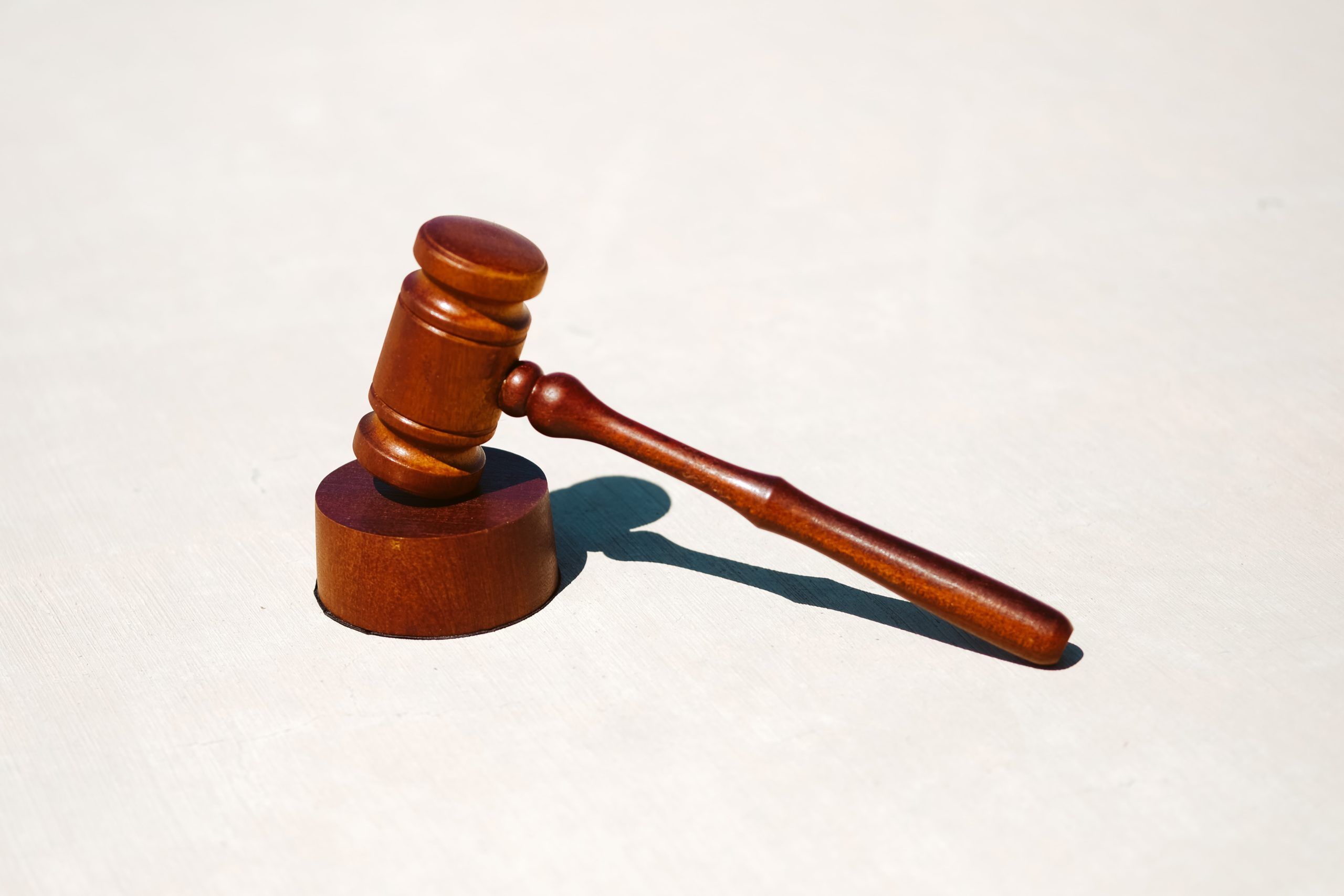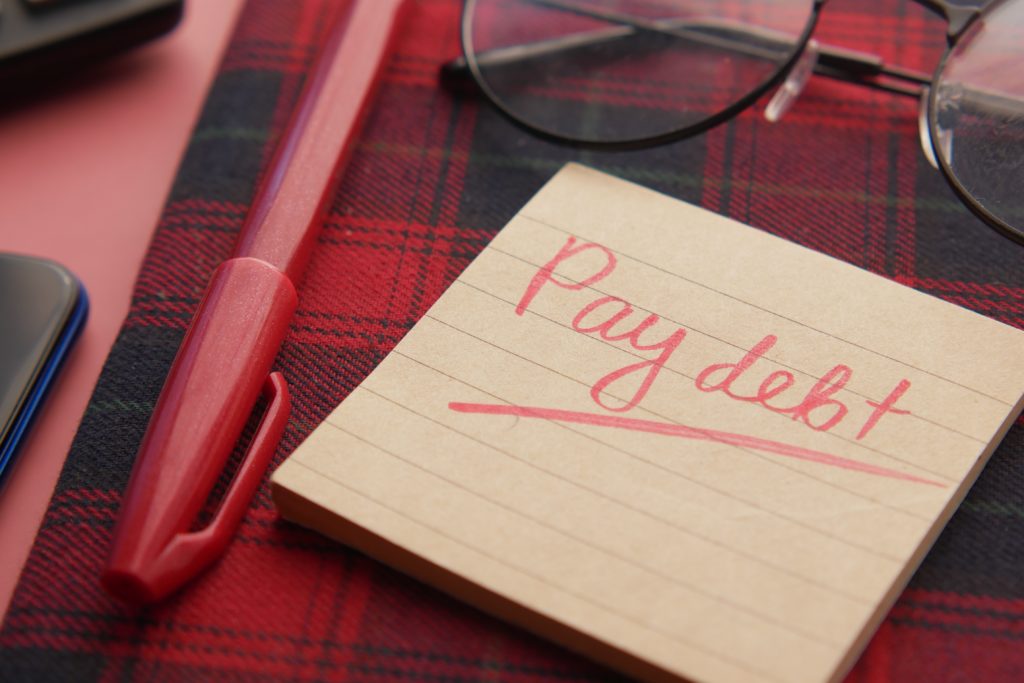
What To Do If Bailiffs Are At Your Door
If you allow your debt to escalate, and fail to take action to pay your bills even after receiving warning letters, then you may be visited by bailiffs. They will try to collect money from you, or assets for the value of your debt.
This is a situation that no one likes to be in; however, bailiffs have to follow certain procedures, which means, if you are visited by them due to unpaid debt, then you do have some rights that you should be aware of.
What Are Bailiffs?

Bailiffs (also known as enforcement agents) are usually self-employed or employed by a private debt collection company. Although they are not, typically, employed by the court, they are certified by the court to collect unpaid debts on behalf of creditors.
Bailiffs have the legal power to remove goods that they’ll sell to pay off your debt.
Additionally, they can also be instructed to visit your home to deliver court documents.
If they cannot gain access to your property (if you fail to let them in), then bailiffs may take items from outside of your property, such as your car.
Depending on the type of debt, or whether they are trying to enforce a High Court Writ (a formal order allowing them to gain access and seize assets to sell), then a bailiff can apply to the court for a warrant. If this is issued, then it will allow the bailiffs to use reasonable force to enter the property.
There are different types of bailiffs and agents:
High Court Bailiff (High Court Enforcement Officer)
This type of bailiff is an officer of the High Court in England and Wales. They are responsible for the oversight of Writs of Control and usually give this authority to a Certificated Enforcement Agent.
County Court Bailiff
This type of bailiff is employed by the county court and enforce county court orders. They can try to obtain payment from you (of up to £5,000, if that is what is owed) or some of your items to sell at auction.
Certified Enforcement Agent
A certified enforcement agent is no longer classed as a bailiff (since new laws came into effect in 2014). These agents are certified by a local court. They can enforce rent arrears, council tax arrears, and parking fines, just to name a few.
What Can Bailiffs Take?
As previously mentioned, once access to your property is gained, bailiffs can take some of your items to sell. The money received from the sale will be used to pay off your debt.
The items that bailiffs are permitted to take and sell include:
- Luxury items, such as a TV or jewellery.
- Items that belong solely to you or items that you own jointly.
- Items from outside of your property, such as a car.
However, there are certain items that bailiffs cannot take. For example:
- Items belonging to someone else (known as third-party goods).
- Items that you need to live, such as a table and chairs, cooker, bed, phone, washing machine, etc (which are covered under ‘basic domestic needs’).
- Items that you’re still paying for.
- Anything that could cause damage to your home if removed.
- Items that you need to work or study, such as tools, computers, vehicles, etc.
- A vehicle displaying a blue badge permit.
- Pets or guide dogs.
If a bailiff tries to take any of the items listed above (known as exempt goods), try to provide evidence as to why they can’t.
If evidence isn’t provided and they still take the items, then you need to complain within seven days, providing evidence and explaining why the goods are exempt. The bailiff should respond to your complaint within ten days.
However, if you don’t receive a response or if the bailiff refuses to return the items you believe to be exempt, then send the complaint directly to the creditor to whom you owe money.
Can A Bailiff Force Entry?
In some circumstances, a bailiff can force entry into your property, but it does depend on the type of debt you owe.
However, you should know that:
- You don’t have to open your door to a bailiff. Keep your door locked. If your door is unlocked, then bailiffs are allowed to gain entry as this isn’t classed as a forced entry.
- They cannot enter your home by force, such as pushing past you (call 999 if you are physically threatened by a bailiff).
- If only children are present, all under the age of 16, then a bailiff cannot enter the property.
- They are not allowed to try to gain access to your property between the hours of 9:00pm and 6:00am.
It is worth noting that a debt collector is different from a bailiff since they do not have the same power. If they say that they’re a debt collector, tell them to leave.
Can Bailiffs Force Entry With A Locksmith?

It is very rare, but bailiffs may sometimes have the right to gain entry into your property by asking a locksmith to open your door.
However, you are usually given the chance to arrange to pay off your debt before it leads to the above situation.
Options For The Debtor
If you’ve been sent warning letters stating that bailiffs will be used if you don’t pay off your debt, then your best option is to get in touch with a debt solution company, such as Swift Debt Help.
For example, a debt solution that could ease your financial situation is an IVA (Individual Voluntary Arrangement). Bailiffs cannot take action against you if you have an IVA in place.
If you’re seeking further advice on IVAs to help you gain control of your debt, then get in touch with us today, and we’d be happy to assist.
Request a Debt Assessment
Disclaimer: For guidance only. Financial information entered must be accurate and would require verification. Other factors will influence your most suitable debt solution.
bailiff, bailiff help, Debt, Debt Help, Debt repayments, Debt support